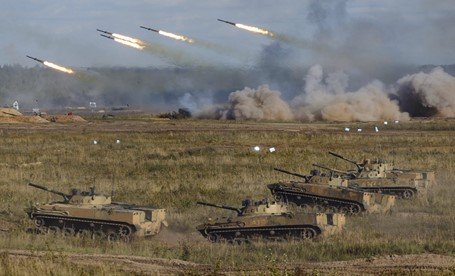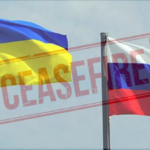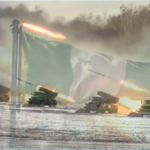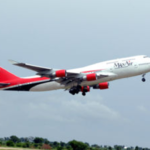Politicians in Georgia has given a cold reception to the call by Ukraine to open a second front with Russia. On Saturday, the Secretary of the National Security and Defense Council of Ukraine called for the opening of a “second {military} front” against Russia.
RT reports that the Secretary, Alexey Danilov made the call while appearing on Kiev’s 1+1 TV station late on Saturday, 27th March.
Danilov said that should new conflicts break out between Russia and third parties, these scenarios would provide “quality support” to Ukraine in trying to fend off Moscow’s ongoing military assault.
Read also; Japan also confused about Russia’s demand to pay for LNG in rubles
The Ukrainian Official went further to suggest that Georgia and Moldova could be these third parties to provide a second front against Russia.
Georgia is behaving not very appropriately, to put it mildly,” the official said, calling on the Salome Zourabichvili government to try and “return” territories. Danilov was apparently referring to South Ossetia and Abkhazia, which broke away from Tbilisi in the 1990s and are recognized as independent by Russia.
“But, what if both Pridnestrovie [another name for Transnistria, an enclave internationally recognised as part of Moldova], and Georgia, and everyone would embark onto returning their territories today,” Danilov asked. A Russian peacekeeping force has been stationed for decades in Transnistria.
“This would definitely help us, because that would make them busy with something besides destroying our cities and villages, killing our children and women.”
Danilov also approved of the idea to claim the Kaliningrad region from Russia, voiced earlier this week by ex-commander of the Polish Land Forces, General Waldemar Skrzypczak. The general claimed that the formerly German region, which ended up under Russian rule after the defeat of the Nazis in World War Two, was, in fact, Polish land.
The remarks prompted widespread condemnation in Russia, with the governor of the region, Anton Alikhanov, warning the Polish general that his country should not raise territorial claims, given that “a very large part of land that is now Poland, in fact, was conquered, claimed from Nazi Germany and transferred as a gift from the Soviet to the Polish people [by Joseph Stalin’s regime].”
In responding to Danilov, a Georgian member of parliament from the ruling Georgian Dream party and the head of Georgia’s parliamentary foreign affairs committee, Nikoloz Samharadze, even expressed doubts such statements could have been produced by that senior official at all.
“I hope this is a lie. Does the Secretary of the Security Council of Ukraine call on Georgia and others to abandon the policy of peaceful restoration of their territorial integrity, opening a second front to destroy our cities and villages, so that Georgian women and children die too? Is this true?” Samkharadze wondered in a social media post.
A similar sentiment was expressed by another MP from the Georgian Dream party, Mikhail Sardzhveladze, who said that igniting more conflicts “will not help or become a relief for Ukraine.”
The Georgian leadership has abstained from imposing anti-Russian sanctions, arguing that such a step would only harm the country’s own economy.
On 25th February, a day after Russia began what it called “special military operation” in Ukraine, the Prime Minister of Georgia, Irakli Garibashvili to the path of what he called Tbilisi’s “pragmatic policy” amid a widening international response to Russia’s attack against Ukraine.
“I want to state clearly and unambiguously, considering our national interests and interests of the people, Georgia does not plan to participate in the financial and economic sanctions, as this would only damage our country and populace more,” Garibashvili told reporters.
In the wake of Russia’s invasion of Ukraine, the United States, European Union, and other countries have been imposing a series of economic sanctions against Moscow.
Georgia’s decision-making in the current crisis is heavily influenced by the experience of 2008, when it lost a war with Russia over South Ossetia, in circumstances that many Georgians see as uncomfortably comparable to what Ukraine is experiencing today.
The current Georgian government came into power after that war on promises to turn down the temperature with Moscow.
They consistently criticize the previous government for starting the war in 2008, giving Russia a pretext to attack by first launching their own assault on Tskhinvali, the de facto capital of South Ossetia.
Garibashvili on February 25 repeated that criticism, blaming the government at the time for “stupidly and foolishly or in an anti-state manner giving in to [Russian] provocation.”
Nnamdi Maduakor is a Writer, Investor and Entrepreneur






















































